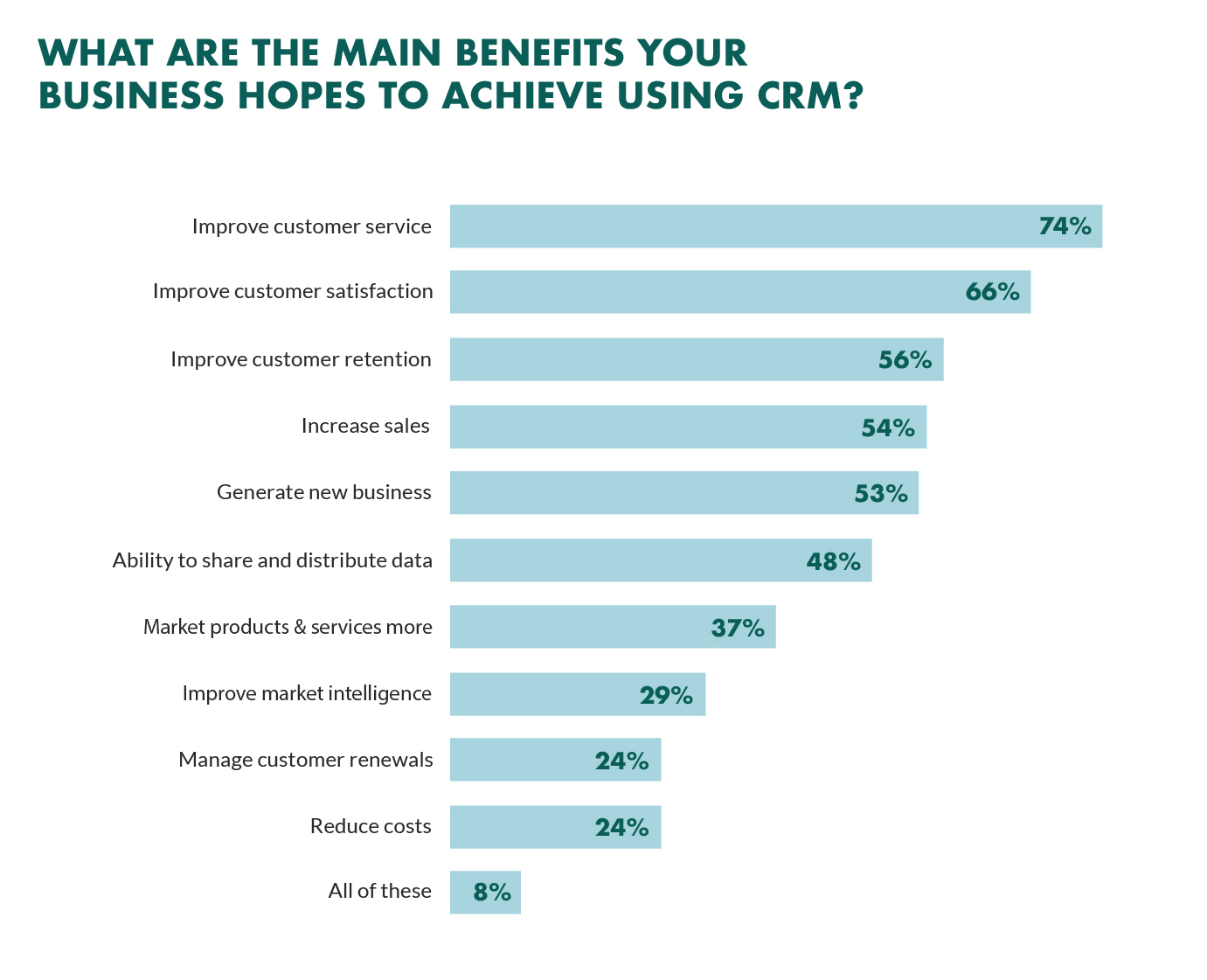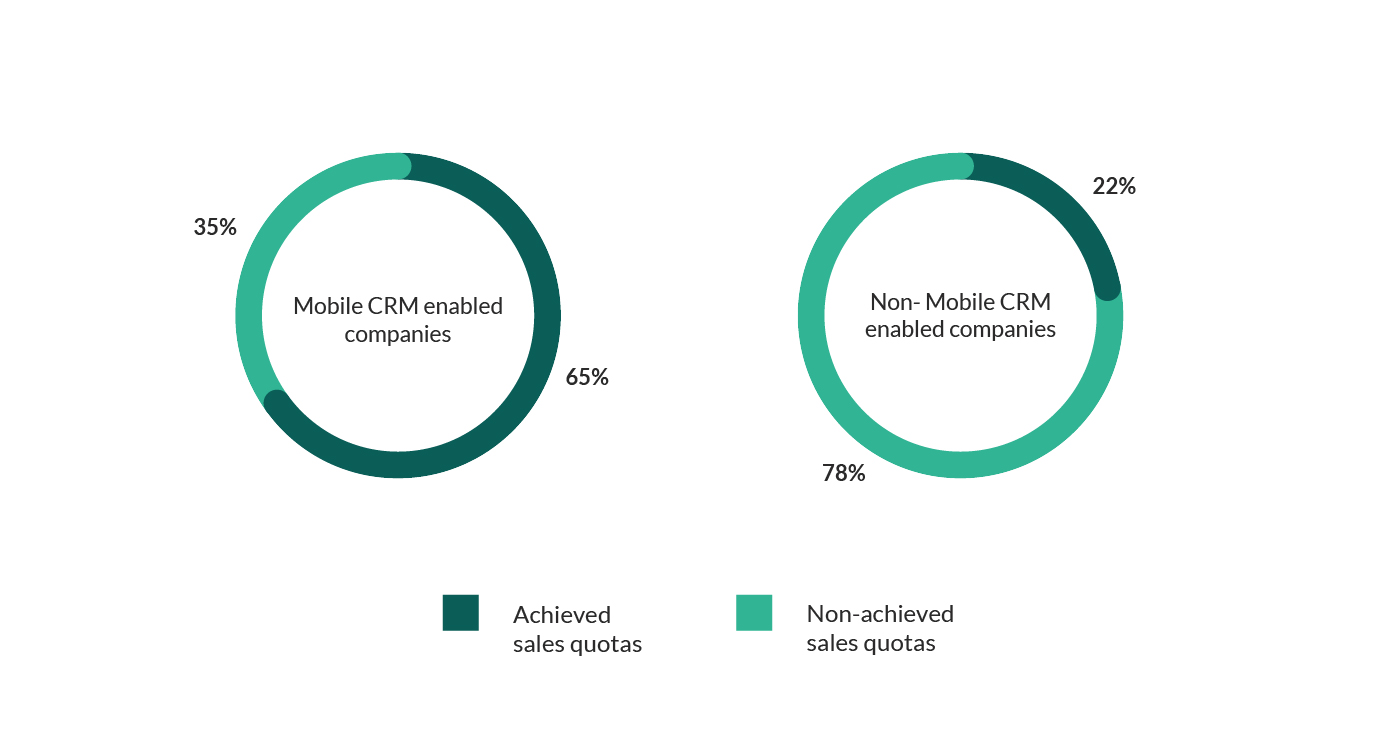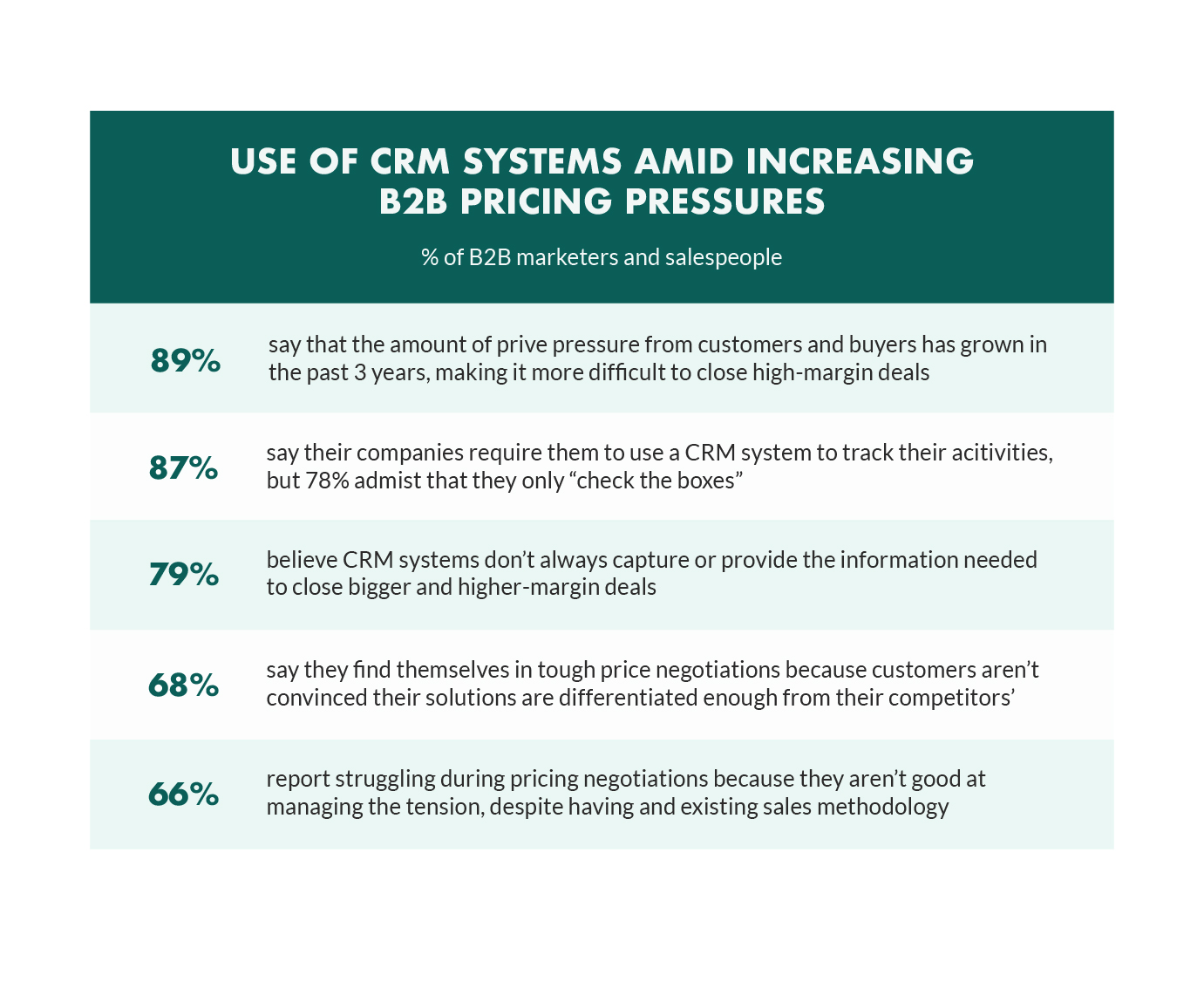Typically, sales managers find it easy to see the benefits of adopting a Customer Relationship Management (CRM) system. They appreciate that in CRM their sales data is going to be stored centrally and presented in an easy-to-follow format, allowing them to monitor processes, staff performance and, as a result, optimize selling.
But, what about average sales people?
More often than not it is them who are not all “happy-go-lucky” about CRM in the beginning. Sales people often see CRM as another tool, as more work and just another way for their bosses keeping track of their work. It is also the extra time that is spent on entering data into the CRM application that adds to the irritation.
Sales people think that this keeps them from their main task – selling. But this article is not about why sales teams don’t often find the goodness in CRM – it is rather about how CRM actually improves the lives of sales people.
A great sales tool underestimated
CRM literally helps to boost sales. Back in 2012, Tech News World published the below research, which revealed that more than half of all businesses (54%) expected to improve their sales with CRM.

Has this happened by now? Well, statistics points out to “Yes”, as 2014 saw an astounding 87% increase in the use of Mobile CRM, which is particularly appealing to sales people who are always on the move.
Talking about the needs, what could be more important for sales reps than achieving the targets? According to The Tas Group, on the average 2/3 of all salesforce (67%) miss their quota. Meanwhile, the study by Innoppl Technologies claims that that 65% of sales reps who have used Mobile CRM achieved their sales quotas, and a staggering 78% of those who didn’t use CRM did not achieve their targets.

Despite all the “pros”, not all sales people seem to be excited by the idea of introducing CRM in their daily routine.
As is shown in the chart below, the number of sales people who misinterpret the value of CRM is 87%, as they think it is adopted by their manager to police their activities. This fear results in them “just checking boxes” in the system, without seeing the true value of this tool.

Even though the benefits that CRM brings to the sales teams may not be immediately recognizable, they are still game-changing if implemented right.
And since those are the sales people that need more CRM induction, this article will bring out the key reasons why CRM can help them achieve their sales goals faster and improve results.
So what’s in CRM for sales people?
Without fear of oversimplifying, the biggest challenges that sales people face are 1) how to qualify and follow up on leads and 2) how to prioritize sales activities.
However, CRM is a tool that not only solves those key problems. In fact, it is able to handle other no less pressing issues.
1. Enjoy a safe storage space
CRM helps sales people to safely and centrally store their contacts, sales opportunities, activities and scheduled plans in one place, and have uninterrupted access to the database from multiple locations. Rest assured that your data won’t just get lost.
2. Plan and time-manage like a pro
CRM helps sales people to optimize their daily schedules and prioritize tasks to make sure customers are not ignored and the key prospects are contacted on time. In fact, CRM allows sales people to spend more time with customers, which leads to more deals closed and a stronger customer base.
3. Activity reports? – No brainer!
CRM helps sales people to easily prepare their weekly or monthly reports for management. The process is automated and transparent, and takes just a few clicks to inform others about what sales that are currently in progress.
4. Stop surfing, start targeting
CRM helps sales people to segment data and identify valuable opportunities via criteria based selections. This prevents you from hours of cutting and pasting from various documents, or surfing in the disorganized lists of data.
5. Stay up-to-date on what’s happening
CRM offers shared calendars, document templates and e-mail integration, uniting all team members and keeping everyone up-to-date. Sharing selling patterns and processes allows sales people to see what works best. CRM also increases communication between the sales force and sales management.
6. Show up in time for the new sale
By tracking all communication with the customers, CRM helps sales people to know exactly when customers need to be contacted; for example, for product replacement, contract renewal, or for an upsell to a new product or service. This all increases your chances of closing a sale.
7. Rationalize your sales moves
CRM helps streamline the entire sales cycle, which results in closing deals and helping everyone in the team to reach targets faster. Since order processing and preparing quotes is automated in CRM, sales teams are able to reduce production costs and increase sales revenue.
8. Know what your customers really want
Since all the customer-related data is stored in CRM, it helps sales people to analyze the needs of customers and even anticipate their problems – all at the right time. All this increases customer satisfaction and ensures loyalty, as well as higher profit margins.
9. Cut down on admin tasks
CRM releases the sales teams from the majority of admin tasks by reducing and even removing some of the repetitive actions that take a lot of time, but yield little profitability. CRM stores product and price details, triggers reminders for activities, and takes sales people through the sales pipeline step by step.
10. Save money
Even though CRM systems are not cheap, they actually help you save your money! With sales people, it is the reduction of errors (for example, in orders or quotes) that CRM can help with. Effort and cost related to correcting those errors may be much higher. Finally, it also boils down to such trivial things as saving money on those cluttering and often vanishing Post-it notes, since every new information can be safely stored in the system.
Conclusion
In a nutshell, sales people and CRM are not an immediate “match made in heaven”, but the more time these two spend together – the stronger the attraction between them becomes.
If adopted and used correctly, CRM is going to boost the performance of any sales team, and will help sales people to excel in 4 areas that are critical for them:
- better search, sort and qualify leads;
- follow up on sales opportunities systematically and on time;
- prioritize and rationalize follow up activities; and
- increase target reach rates faster.
The improvements that CRM brings, however, don’t come without effort, understanding and determination from the sales people’s side. Sales reps have to unanimously understand that updating CRM is central to their success. Also, sales teams need to synchronize their activities and base them on best practices. This will enable a better sharing of information and will secure more effective work with CRM.
More so, sales teams should embrace the idea that by registering all activities and following the established sales routines they are more likely to reach their sales goals. It is also important to realize that sales people are going to benefit a lot by being able to update and share the newest information on prospects and customers – all in one place that is easy to access.
Finally, CRM enhances sales people’s mobility, as the database and all your work-related activities can be accessed on multiple devices and from different locations.
If you’d like to learn more about how CRM can help your business, download this free white paper or sign up for a free demo
